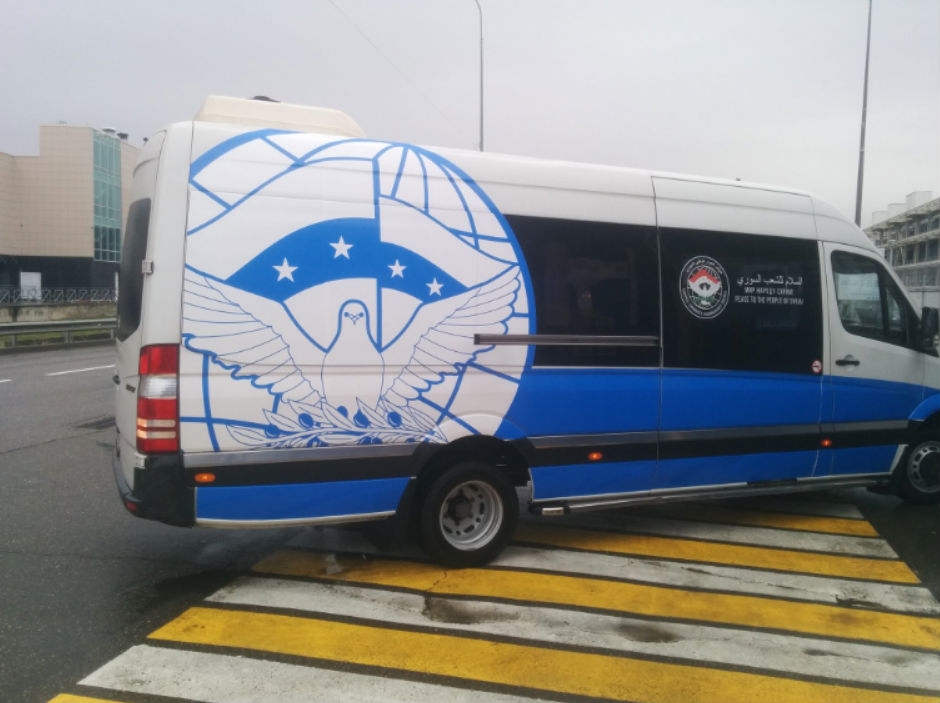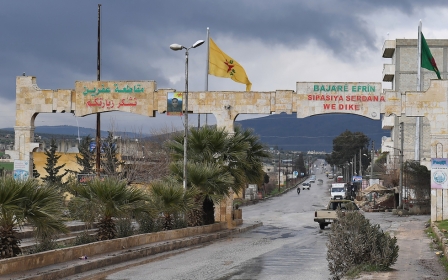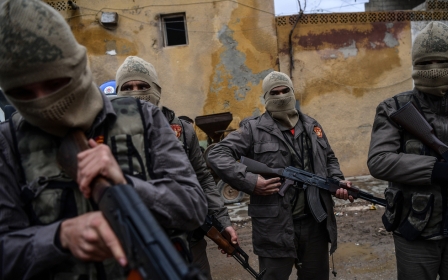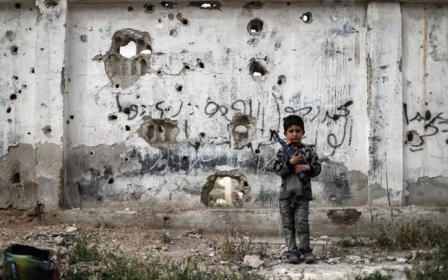Rocky start for Syria talks in Russia as delegates refuse to leave airport

A Syrian peace conference in Russia got off to a rocky start on Tuesday after some delegates opposed to President Bashar al-Assad refused to leave the airport on arrival, saying they were offended by the presence of the Syrian state's flag and emblem.
Hours later, some of the attendees heckled Russian Foreign Minister Sergei Lavrov during a speech, accusing Moscow of killing civilians in Syria with its air strikes.
Russia, a staunch Assad ally, is hosting what it has called a Syrian Congress of National Dialogue in the Black Sea resort of Sochi that it hopes will launch negotiations on drafting a new constitution for Syria after almost seven years of war.
But in a blow to Moscow, which has cast itself as a Middle East peace broker, the event has been boycotted by the leadership of the main Syrian opposition bloc, while powers such as the United States, Britain and France are not there because of what they say is the Syrian government's refusal to properly engage.
As the conference continued, Russian analysts were already reframing the talks as a platform to discuss issues decided elsewhere, rather than a process in their own right, Neil Hauer, a freelance journalist, told Middle East Eye from Sochi.
“It’s already a huge failure for the Russians because they invested so much political capital in this trying to set it up for months,” Hauer said.
One major failure, he said, is that the Kurds, who were supposed to be involved in contrast to the Astana and Geneva talks, have boycotted in response to the Turkish offensive in Afrin.
“The other point was to get the opposition to recognise and accept a regime-dominated deal,” he said. “They didn’t buy that either.”
The conference, which was originally billed as a two-day event, got underway as a one-day event on Tuesday. Reuters reporters said most of the delegates they had spoken to had come from Damascus and did not oppose Assad.
Hauer said that an official list of delegates had not been made available by midday on Tuesday.
One group of delegates who had flown in from Turkey and were opposed to Assad refused to leave Sochi airport until Syrian government flags and emblems were taken down.
"We will go back to Turkey," Ahmad al-Burri, who has taken part in Syrian peace talks in Kazakhstan, told Reuters by phone.
"Whatever happens we will not enter Sochi. We informed them (the Russians) of our conditions that they should remove all the logos and flags representing the Syrian government."
Mohammed Adnan, a journalist and member of the Syrian opposition based in Turkey, said there were about 70 people in the group at the airport and that they were waiting for a plane to take them back to Ankara.
Russian officials have complained of attempts to sabotage the conference, but the Kremlin said on Monday it was unfazed by a Syrian opposition boycott.
The Syrian Negotiations Commission, the main opposition bloc, announced on Saturday that it would not attend the Sochi talks because they undercut the UN-led negotiations.
Earlier this month, Syrian opposition chief Nasr al-Hariri told Middle East Eye that 130 civil society groups, mostly based in Syria, were against the Russian process.
"The voice of these groups cannot be ignored," Hariri said.
However, according to Russia's Tass news agency, other Syrian opposition figures were set to attend including Qadri Jamil with "the Moscow platform", Randa Kassis from "the Astana platform", Ahmad Jarba of Syria Tomorrow and Haytham Manna from the Syrian National Coordination Committee for Democratic Change.
Middle East Eye propose une couverture et une analyse indépendantes et incomparables du Moyen-Orient, de l’Afrique du Nord et d’autres régions du monde. Pour en savoir plus sur la reprise de ce contenu et les frais qui s’appliquent, veuillez remplir ce formulaire [en anglais]. Pour en savoir plus sur MEE, cliquez ici [en anglais].




